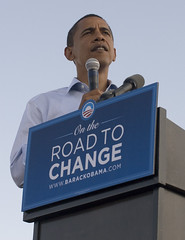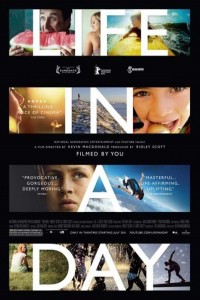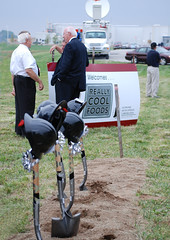 On Saturday December 31st, President Obama signed into law the National Defense Authorization Act for Fiscal Year 2012, which authorizes indefinite military detention without trial of American citizens, among other things. The president's signature was accompanied by a signing statement noting serious reservations, saying "The fact that I support this bill as a whole does not mean I agree with everything in it."
On Saturday December 31st, President Obama signed into law the National Defense Authorization Act for Fiscal Year 2012, which authorizes indefinite military detention without trial of American citizens, among other things. The president's signature was accompanied by a signing statement noting serious reservations, saying "The fact that I support this bill as a whole does not mean I agree with everything in it."
For the moment, let's put aside the horrifying fact that such a bill was even earnestly discussed or advanced in Congress, or that indefinite detention without a trial of anyone is something we're willing to entertain as acceptable. Let's put aside the disturbing practice of folding fundamental changes to U.S. military and legal policy into what are essentially administrative budgeting conversations. And let's pretend that the president didn't sign such a groundbreaking bill on a holiday, a Saturday when most of the country was known to be preoccupied with celebrating the particulars of the Gregorian calendar.
All those things aside, President Obama still signed a bill that he says he disagrees with. That's fine if the bill says that unicorns might exist or that the White House will be painted green; sign it, put it in a file somewhere, work out the details later. But a bill that authorizes the indefinite detention of U.S. citizens without trial seems like it deserves a lot more than the "I don't like it but I guess it's what we have to do" treatment.








